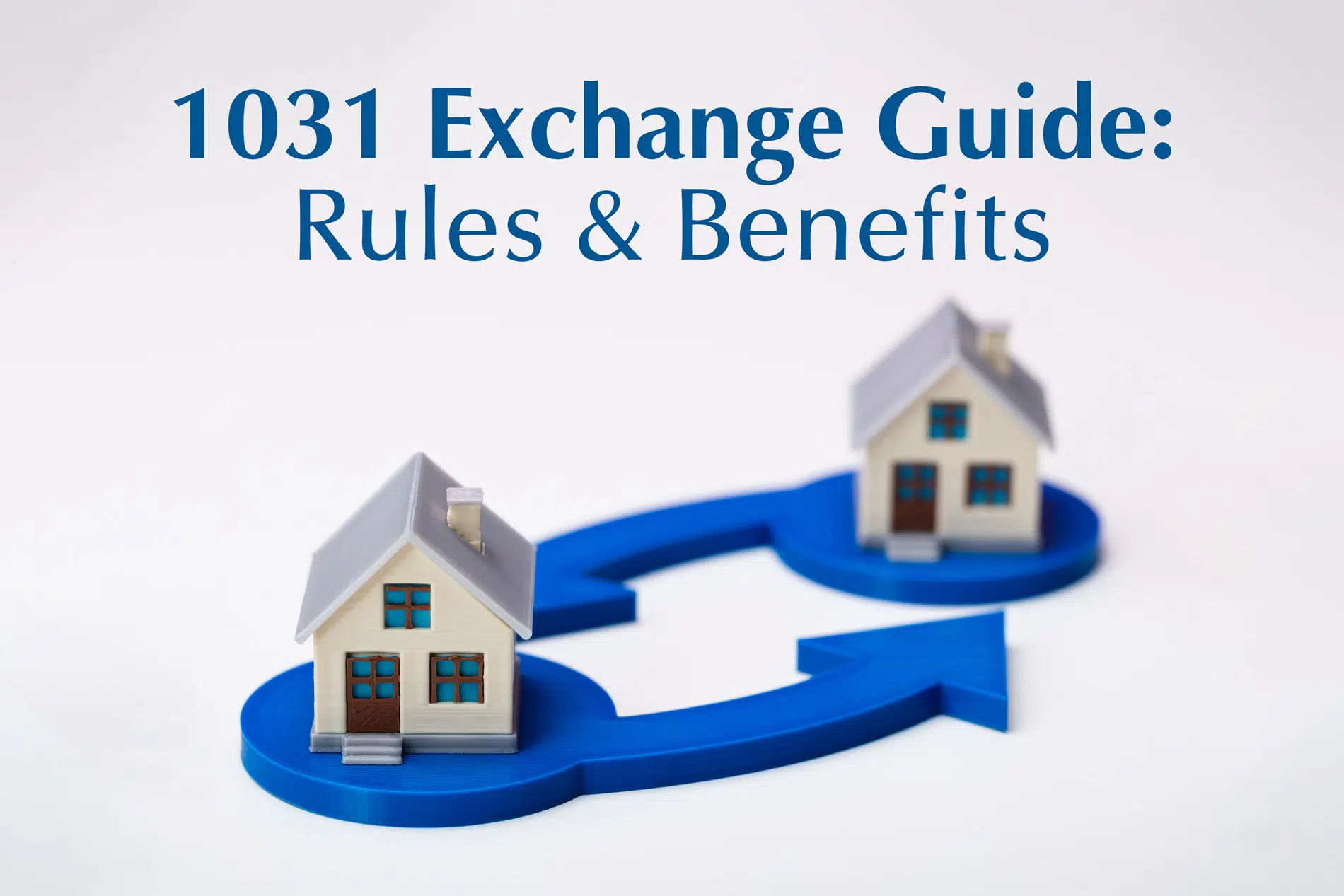
From the start, a 1031 exchange can sound like a property investor’s dream. Deferring capital gains when you sell an investment property is enticing. However, it’s important to understand all the components of a 1031 exchange to help determine if it’s the best option for you.
What is a 1031 exchange?
A 1031 exchange is a method of exchanging like-kind investment properties that allows the deferment of capital gains taxes. To effectively complete a 1031 exchange, you must exchange one property for another of equal or higher value.
Benefits of a 1031 exchange
One of the greatest benefits is tax deferment. A 1031 exchange allows investors to switch out an investment property for another while deferring capital gains taxes that would need to be paid at the time of sale.
For example, if you purchase a $100,000 property and its value grows to 200,000, you can use a 1031 exchange to defer the $100,000 of gain through purchasing another 200,000 property that has greater potential to grow. In the same way a stock investor might move investments from individual stocks to an index fund, a 1031 exchange allows you to move your investment capital around in a way that minimizes your risk.
It’s important to note that when a 1031 exchanged property is inherited, the purchase price of the property is stepped up (or down) to fair market value. Using our example above, the property originally was purchased for $100,000 that grew to $200,000. If sold, the investor would pay tax on the gain of $100,000. If inherited, the investor’s purchase price “steps up” to the fair market value at the time of death. In this case, if sold immediately, the individual inheriting the asset would pay $0 in capital gains tax.
Rules of 1031
1. You must use a qualified intermediary
Proceeds from the sale must be transferred to a qualified intermediary. This intermediary, many times referred to as a 1031 agent, is the person who agrees to facilitate the 1031 exchange through holding the funds in escrow until the funds involved can be transferred to the seller of the replacement property.
Both the property being exchanged/sold and the property being purchased needs to be bought from the same party or else it won’t be accepted.
2. Business or investment property only
As of January 1st, 2018, a 1031 exchange no longer applies to exchanges of personal or intangible property and can only be performed for business or investment property.
This means you cannot sell an investment property or business property to purchase a personal property or sell a personal residence to purchase an investment or business property.
3. Needs to be a like-kind property
According to the IRS, “properties are of like-kind if they’re of the same nature or character, even if they differ in grade or quality. For example, an apartment building would generally be like-kind to another apartment building.”
Although this statement is vague, it does leave room for some flexibility meaning you can make a case that any two business or investment properties are like-kind. In some cases, this could mean relinquishing one property in exchange for two new properties.
4. Timeline
You have 45 days to identify a property and 135 days to close on the property (180 days total).
4. The property needs to be of equal or greater value
In order to qualify for 100% tax deferment, the net market value of the property you are buying needs to be either equal or greater than the one you’re selling or else you won’t be eligible for 100% tax deferment (this defeats the whole purpose of the exchange).
5. Timeline
You have 45 calendar days to select 3 possible replacement properties. Your replacement properties must be qualifying like-kind exchange candidates. Then, the investor has 180 days or by the due date of the income tax return with extension (whichever comes earlier) to purchase and initiate the exchange to qualify for a 100% tax deferment.
Is a 1031 Exchange Right for You?
1031 exchanges are fairly inclusive. Those who qualify for one either own a business property or are a property investor. You can perform one if you’re a:
- Trust
- Partnership (general/limited)
- LLC
- C corp
- S corp
- Individual (or sole proprietorship)
There are a few points to consider when evaluating if a 1031 exchange is right for you:
1. If you cannot find the right property in time
If you can’t identify up to three like-kind properties you’re interested in purchasing in 45-days, the property is disqualified from the trade.
2. How long you’re holding the property
A 1031 exchange defers tax. It does not eliminate the tax. Make sure the return on your hassle is worth the additional effort or working through this process.
3. You don’t have the time to commit
It’s no secret that searching for three potential properties with a 45-day deadline can consume a lot of time. If your time is more valuable elsewhere, it’s best to reallocate your time elsewhere than a 1031 exchange.
Summary
A 1031 exchange, when executed properly, can be a powerful real estate tool for investors and property managers. It allows investors to upgrade their properties and defer capital gains taxes that would otherwise be due at the time of sale.
There are a few considerations that investors need to take before diving into a 1031 exchange including requirements, qualifications, time allocation, timeline, and costs but if you check all the boxes, it can be a profitable option to explore.



